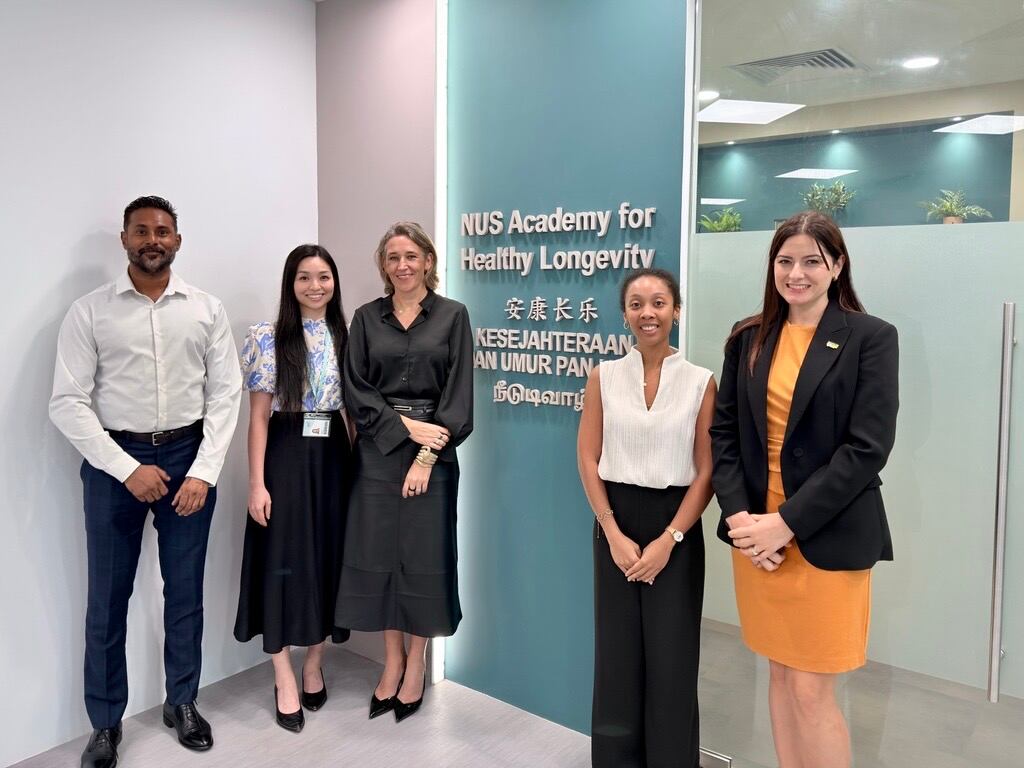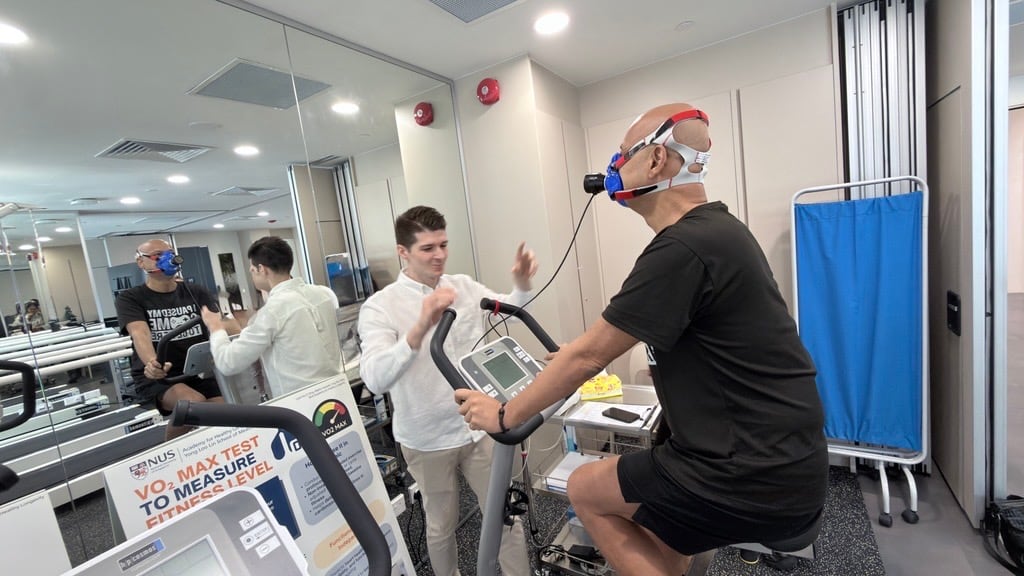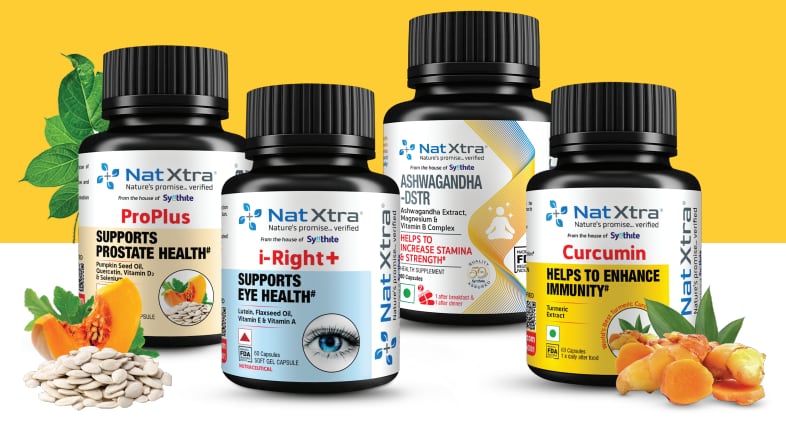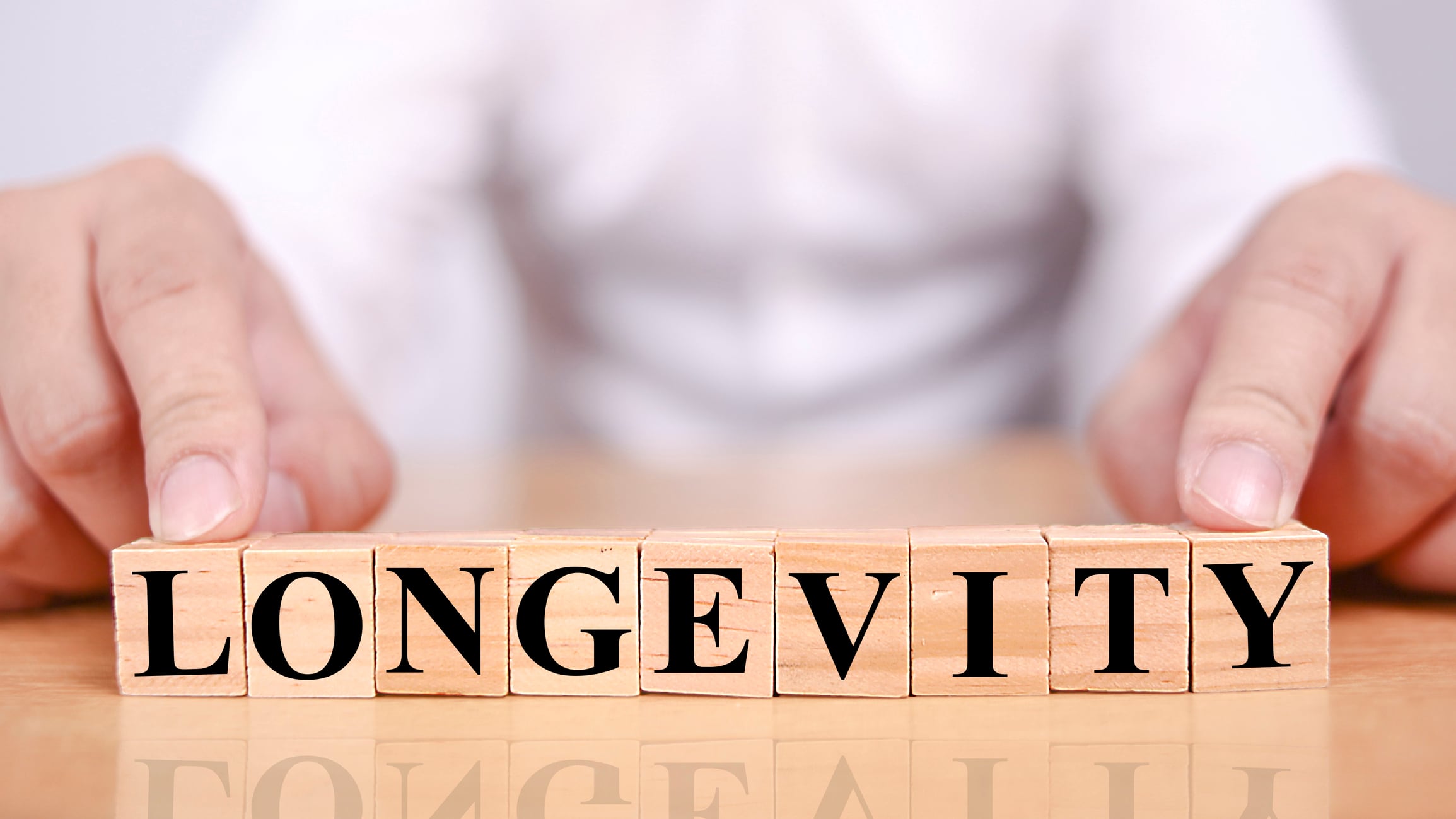The Clinical Trial Center is run by the Academy for Healthy Longevity - part of NUS’s Yong Loo Lin School of Medicine.
The center, located within NUS Medicine’s compound, was officiated during an opening ceremony last Friday (Oct 10).
“Aging is one of the greatest challenges confronting the world today. While Singaporeans are living longer, the last 10 years of life are often spent in ill health,” said Professor Chong Yap Seng, dean, NUS Medicine.
“The Clinical Trial Centre strengthens our ability to translate our research into real-world solutions that improve care, policy, and population health.
“By integrating geroscience research and education into one facility, we are building the talent and the evidence base required to benefit our ageing communities here and around the world,” he said.
The center is also working with major industry players to advance longevity research.
“This clinical trial center is created for a precise purpose, to test and redefine interventions that target biological aging and to translate them safely, rigorously, and impactfully,” said Professor Andrea Maier, director of the NUS Academy for Healthy Longevity at NUS Medicine during the opening ceremony.
“Its foundation rests on four key pillars - the academia, industry, policy and the public.”
Haleon is one of the industry partners with the center is conducting independent research on for one of its Centrum multivitamin products.
“Haleon, Abbott, DoNotAge, Danone are advancing nutraceutical and lifestyle-based therapeutics with us, and with AMILI, we are working together to drive microbiome science,” added Prof Maier, who is also the Oon Chiew Seng Professor in Medicine, Healthy Ageing and Dementia Research at NUS Medicine.
“We also have a joint lab with L’Oreal to extend precision geromedicine to the skin. Beauty and longevity are seamlessly intertwined.”
The lab with L’Oreal is a skin and scalp health examination room within the clinical trial center.
What’s in the center
The academy has been running clinical trials at the Healthy Longevity Research Clinic at Alexandra Hospital since it was founded about two years ago, but the newly opened center has a larger capacity and allows clinical trials to run in parallel.
Within the 350 square meters space are dedicated rooms for clinical examination of various organs, from skin and scalp, ophthalmological and dental health, to cardiovascular, musculoskeletal system, cognitive performance, and sleep and behavior monitoring.
“We have clinical study rooms which are dedicated to evaluating for instance, how are the blood vessels functioning in the eye, cognitive performance, skin health, heart and blood vessel elasticity.
“For evaluating the musculoskeletal system, we not only have imaging techniques like DEXA (Dual-Energy X-ray Absorptiometry) scan, but also an entire gym where we can test and train endurance,” Prof Maier told NutraIngredients.
Aside from having a more comprehensive set of equipment, the center also enables on-site collection and immediate processing of biological samples.
“Very importantly, most of the studies require taking either blood, urine, saliva, hair or even skin samples.
“For this purpose, we now have dedicated rooms where we can take the biopsies which are just right next to the laboratory,” she said.
This is unlike the conventional clinical trial setting, where biopsies taken have to be transported to a laboratory which is located elsewhere.
Having the two facilities in the same place cuts down the amount of time where the biopsies are transported around, in turn increases the quality of samples and clinical trials.

Biological age clocks
Established biological age clocks will also be used to measure the biological age of different organs, and from there decide the interventions required.
At the same time, the center will adapt existing biological clocks and even work on developing new biological clocks to ensure that they are appropriate for the local Singaporean and wider Asian populations.
“We have implemented many biological age clocks and from a research perspective, we are validating if these are appropriate for example in Singaporeans and Asians in our region; if they are appropriate for males, for females, and for which age category,” said Prof Maier.
Ongoing trials
One of the trials that is taking place at the center will evaluate the effects of a Centrum multivitamin by Haleon.
Named CEDIRA, or “The effect of Centrum, daily intake of multivitamin & mineral supplementation, on biological age in middle-aged individuals,” this is a 12-month long randomized placebo-controlled trial involving 400 Singaporean men and women of different ethnicities and are between 40 and 60 years old.
The trial compares the biological age of the participants before and after taking the Centrum supplement or placebo.
Blood, saliva, stool, urine samples are taken to evaluate the change in biological age, as well as anthropometry and body composition.
As part of the study’s secondary objective, cognition, muscle strength test, skin analysis and an online questionnaire looking at their lifestyle and quality of life will also be performed on the participants.
Another trial that is taking place is PROMETHEUS - the short form for “PRecision gerOMedicinE Tailored Healthy agEing with lifestyle, sUpplements & drugS.”
The clinical trial was awarded US$250k after emerging as one of the top 40 semi-finalists in the $101m XPRIZE Healthspan Awards.
The eight-week long study will involve 20 individuals age between 50 and 80.
It will assess whether a multi-nutrient supplement and exercise program could reverse biological age.
The nutrition supplement used is a mix of fucoidan, nicotinamide mononucleotide (NMN), urolithin A, ergothioneine, multivitamin and whey protein.
Evidence needed
“The world needs evidence on how to keep individuals healthy. We need to understand how we can keep ourselves healthier for longer.
“This is why we are doing so many clinical trials, because we now understand that we do not have to wait until we have an age-related disease, and we can optimize our health for more years of functioning well and leading happier lives,” said Prof Maier, on reasons for opening the center.
Bringing validated therapies to consumers is another main reason for opening of the center.
“The second reason is there are so many consumers asking for products that can help them...We have to bring evidence to serve consumers much better than we did in the past decade,” she said.
The centre also serves as a training ground for budding scientists, healthcare professionals, and educators. Some of the plans include offering hands-on exposure to data collection, clinical assessments, and translational research processes designed to enhance expertise in this field.
“With the Centre, we aim to generate high-quality evidence needed to extend healthspan, while training a new cadre of clinician-scientists to translate geroscience from bench to bedside,” said Prof Maier.





